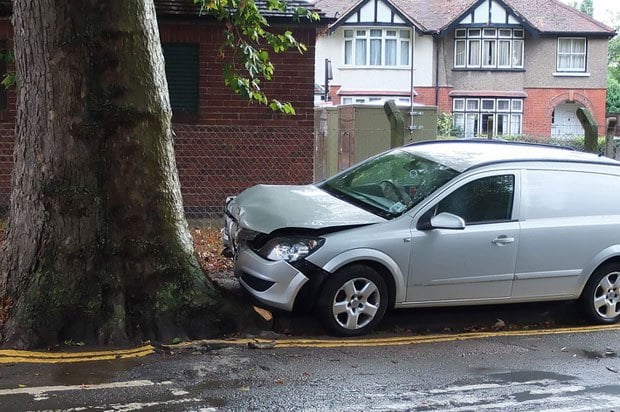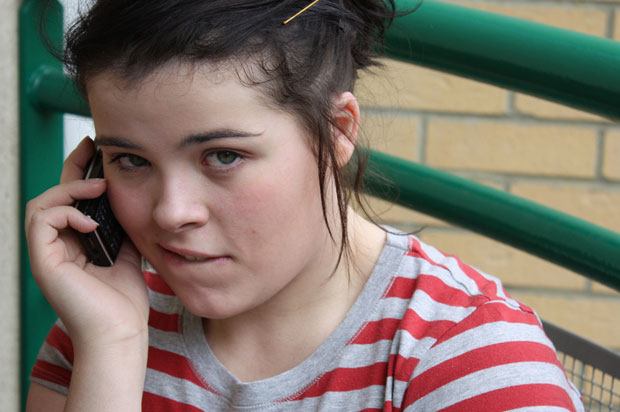Road accidents

Woops.
What should you do if you hit a lampost, or another car? What happens if you’re accused of leaving the scene of an accident in the UK? Hopefully you won’t ever have to deal with an accident, but it’s best to be prepared so you know what to do. If you find yourself in a situation where you’ve hit a lamppost or another car in the UK, it’s crucial to follow the proper procedures. In the unfortunate event of a personal injury resulting from the accident, seeking legal advice becomes paramount. A skilled personal injury lawyer like the Stroudsburg car accident lawyer can guide you through the complexities of the legal process and help you pursue compensation for medical expenses, lost wages, and other damages. To understand the importance of uninsured motorist coverage in such situations, visit https://rhllaw.com/maryland-personal-injury-lawyer/what-is-uninsured-motorist-coverage-in-maryland/ for valuable insights and information. Here’s our guide to road accidents and how to deal with them.
What do you do after a traffic accident?
The first thing you should do is stop the car and try to stay calm and not panic. If someone is hurt, call 999 to alert the emergency services. Even if the accident isn’t your fault, you’re legally required to stop at the scene of an accident if:
- Someone’s been injured.
- There’s damage to someone’s vehicle or property.
- An animal has been injured or killed.
- A fixed object has been damaged.
After ensuring everyone’s safety and calling emergency services, it’s crucial to assess the situation and provide first aid if needed. Remember to prioritize your safety and the safety of others involved in the accident. If someone is injured, you can take basic first aid steps until professional help arrives. This might include applying pressure to stop bleeding, keeping the injured person calm, and ensuring they are in a safe position. If you’re unsure about what to do, contact emergency services immediately for guidance.
Additionally, having a well-equipped first aid kit in your vehicle can be invaluable in such situations. A comprehensive first aid kit can contain essential supplies such as bandages, antiseptic wipes, and other items to address minor injuries. You can find a variety of first aid kits, visit www.e-firstaidsupplies.com, which offers a range of products to help you be prepared for unexpected situations on the road. Being proactive and having the right tools at hand can make a significant difference in providing timely assistance after a traffic accident.
Accidents on the road can be particularly distressing when children are involved, given their heightened vulnerability. First aid training, such as that offered by paediatricfirstaid.co.uk, can equip individuals with the knowledge and confidence to respond effectively to child-specific injuries. Being proactive in acquiring paediatric first aid training ensures that individuals are well-prepared to offer timely and appropriate assistance, potentially making a significant difference in the outcome of an accident involving children.
Access the damage
If after a collision you’ll be feeling lots of different emotions. You might be confused about what happened, angry because of another driver’s incompetence, or relieved that you’re still in one piece. Take a few minutes to compose yourself and avoid lashing out, however tempting it may be. We’ve got some tips for dealing with anger here.
As you navigate through the aftermath of a collision, it’s natural to feel a range of emotions such as confusion, anger, or relief. Taking a few moments to compose yourself is essential to avoid reacting impulsively. It’s during these challenging times that seeking the guidance of legal experts becomes invaluable. In such instances, enlisting the support of a personal injury lawyer can provide the necessary assistance. If you find yourself grappling with the aftermath of an accident and the complexities of potential legal proceedings, turning to professionals like BaumgartnerLawyers.com, an expert law firm, can be a prudent decision. Their expertise in personal injury cases ensures that you receive the guidance and support needed to navigate through the legal complexities, allowing you to focus on recovery and moving forward.
Once you’ve established whether anyone is hurt or not, check out the damage that’s been done to any vehicles or property. If you’ve got a camera with you, take photographs of the vehicles or draw a sketch of what happened and any damage that was done.
“Any information you can collect, any witnesses and any pictures you can get will be absolutely vital,” says Andrew Howard, Head of Safety for the AA. “Even if your phone doesn’t take very good pictures it should still be enough to help, so take as many as you can from lots of different angles.”
What you need for an insurance claim
It’s very important that you keep everything fresh in your mind in case you need to make an insurance claim, so take notes about what happened, such as:
- Time and date of the accident.
- Weather conditions.
- Estimated speeds of the vehicles.
- Details of any vehicles involved, including: the registration number; car model; any distinguishing features; the number of passengers in the vehicles.
- Details of any witnesses that saw the accident.
- Damage done to the vehicles.
- Any injuries that were sustained.
Exchanging details
When someone involved in an accident asks for your contact details, you’re legally required to give them, and vice versa. Take down the name, address, telephone number, registration number and insurance details of any other drivers involved. This will enable you to contact each other about claiming insurance.
Telling the police
If you’re unable to swap details with the other driver at the scene of the accident, make sure you report the accident to the police within 24 hours. The police should also be notified if someone has been injured in the crash, or if one of the drivers is unable to produce an insurance certificate at the scene.
In England, Wales and Scotland, the owner of a car can be traced by the Driver and Vehicle Licensing Agency (DVLA) if they refuse to give their contact details at the scene of an accident. This information can be given to anyone who has a good reason for knowing, as long as it relates to a vehicle or its use on the road.
What to do if you hit a lamppost, bollard or parked car
If you hit a stationary object, such as a lamppost, bollard or parked car, you’ll need to stop your vehicle and be prepared to give your details to anybody who asks for it. If the person responsible for the stationary object cannot be contacted then you’ll need to report the accident to the police so they can log the accident and contact the owner.
This might seem particularly important if you hit a parked car, but the local council will also want to know about any damage caused to their lampposts, bollards and other things they might have to pay to repair.
What to do if someone hits your parked car
If someone hits your parked car, don’t move it. If you can locate the person who caused the damage, exchange information with them. Then, call the local authorities to file a police report and notify your insurer. If you don’t know how it happened you could ask anyone nearby if they saw anything or check if any nearby doorbell cameras recorded what happened.
Learner drivers
Learner drivers have exactly the same rights as other drivers when they’re involved in a traffic accident. It’s their duty to report an accident and only the responsibility of the driver’s supervisor in certain situations. The police are allowed to ask for the supervisor’s driving licence and certificate of insurance if they need it.
Collisions with animals
If you’ve hit an animal on the road and it’s still alive then call the police so they can get a vet out to the scene. There is no legal requirement to report a road accident involving a wild animal to the police (although make sure you do try to help them); however, accidents involving pigs, cattle, goats, sheep, horses and dogs need to be reported.
If you’re involved in an accident, don’t:
- Drive away without stopping – it’s a criminal offence.
- Admit that it was your fault. You may find later that the other driver was drunk, driving too fast or without lights – in which case you might not be to blame at all. If you do admit responsibility, your words may end up being used against you in court and may affect your insurance claim.
- Be swayed if the other driver suggests that calling the police isn’t necessary, and/or offers you cash to cover the damage. It might be an offence not to report the accident, and you may find that the damage to your vehicle costs a lot more than the fan of cash being waved under your nose.
Thanks to Citizens Advice Bureau for help with this article.
Photo of crashed car by volunteer photographer Jeff Arris.
Next Steps
- Chat about this subject on our Discussion Boards.
By Chris Denholm
Updated on 03-May-2023
No featured article










